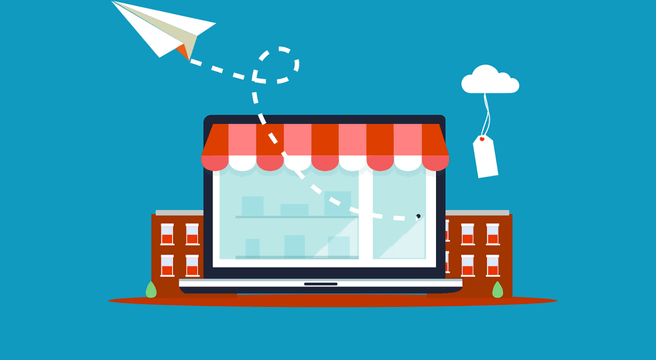In 2021, there’s probably a very good reason you haven’t started selling online.
The bricks and mortar experience could be a central part of your brand, or you’re a brand-new enterprise that’s selling locally.
Now, we’ve all got to scramble to adjust our offering. Developing your business’s service, products, experience and brand to fit our new no-contact world.
1. Replicate your business’s physical offering
Restaurants can deliver. Some shops have done kerb-side pickup when the tier system has allowed. How can your business take its service out of its usual home?
Capture the experience
An estate agent I know is bribing her son to fly his drone around properties so buyers can get the full experience. It sounds a bit mad, but drones are not that expensive and can really capture products you’d usually need to see in person.
Take your vibe to the customer
Whatever makes your physical offering special, think about how to replicate that feeling in delivery or pick-up. Nicely branded paper goods, a little gift or a hand-written note could be just the ticket.
2. Streamline your customer service
You may not even have someone in an office answering a phone right now. How we maintain our customer service throughout this crisis is imperative to our survival – so we have to find the solution.
Four tools to quickly digitise customer service
- Add Yell’s Hartley chatbot to your Yell.com listings so customers can get instant responses
- Set up WhatsApp for Business to manage customer service chat
- Get an easy web chat plugin for your website – check my guide to getting started
- Actively promote customer service on your social media, which lets fewer people handle more customers at once
3. Get your products online
An online shop built for you
Yell offers several options for getting a professional-looking e-commerce website set up for your business – find out more here.
These websites also enable you to sell products via social media on Facebook and Instagram. Good product photography will help you here, so focus on quality over quantity for now. Having a few products looking great lets you start to market them. With money coming in, you can then expand your product range.
A third-party selling platform
There are lots of platforms that help small businesses start selling online that don’t necessitate having your own website. If you’re a small maker, Etsy, Depop and even eBay and Amazon have thriving communities of independent sellers.
You can be set up and selling within hours, so this is a great option if you don’t have much budget or time.
The key to getting the most out of these platforms is to focus on top-quality product photography (as good as you can possibly get it – so invest in a little photo cube and some lights) and super-fast customer service. Amazon, in particular, has strict standards, so do your research and play by the rules.
A self-serve ecommerce site
If you’re musing between a third-party platform and your own custom website, a middle ground could be setting up a simple Shopify site. This is all about the ecommerce (although the templates are very pretty) and it’s built to shift products. Shopify is simple to use and manage, and it’s a buying experience that shoppers are used to.
Shopify also comes ready-integrated with social platforms and various stock management systems, so it’s a fairly out-of-the-box process to start selling online.
It’s now or never
If you’ve never sold online before, a pandemic is a tough push but it’s an opportunity for your business to take its next step. Getting your products, service and customer support online has never been easier, with so many tools and plugins and apps to help you.
If you need more of a hands-off approach to going digital, talk to a Yell expert about getting your online business off the ground.

